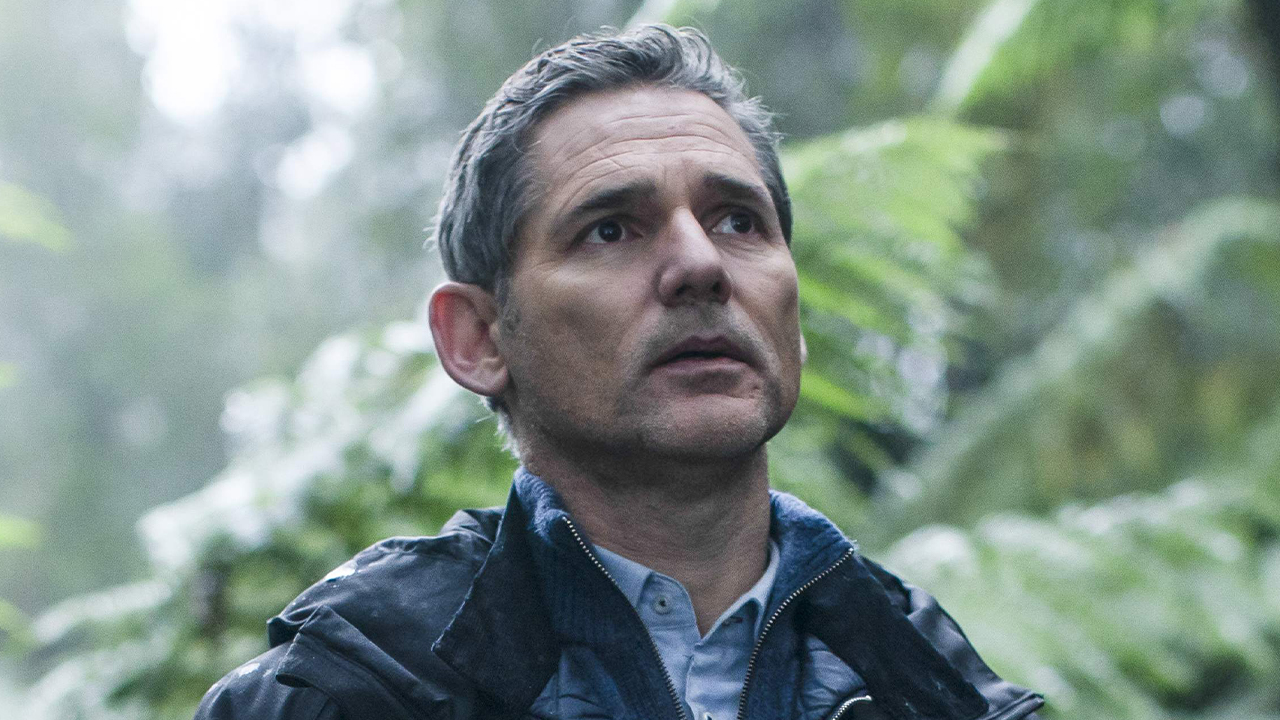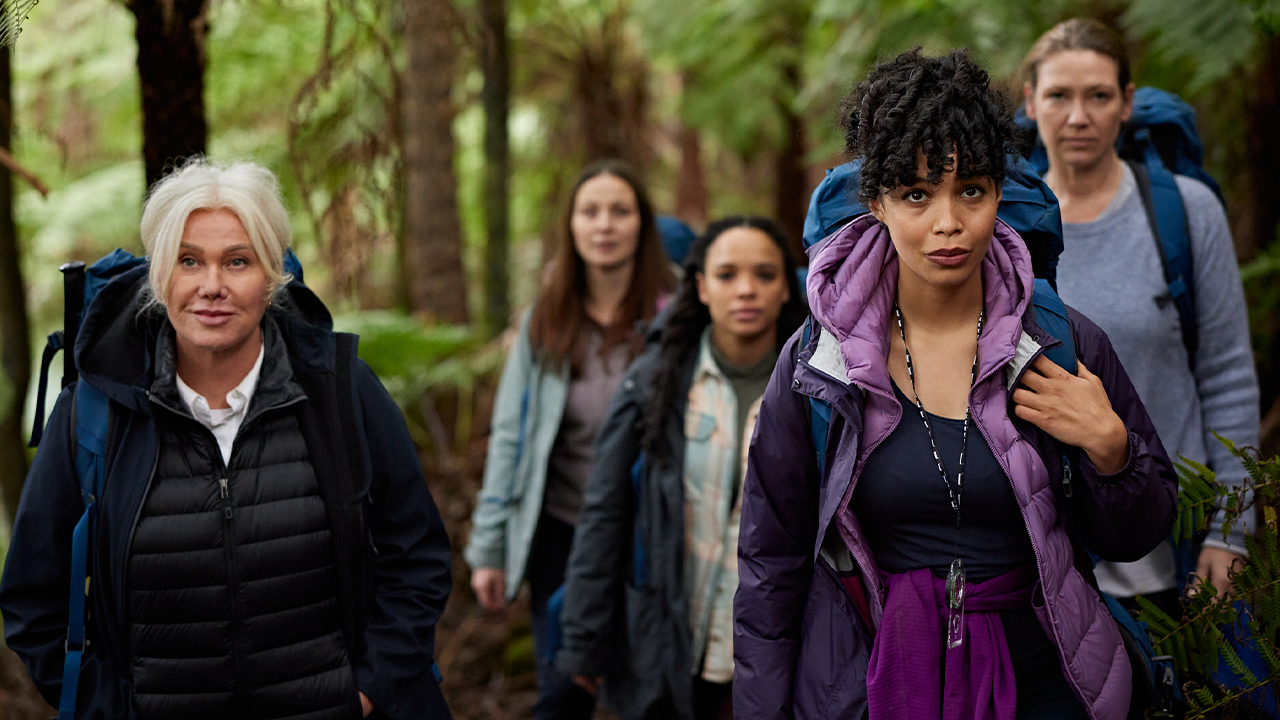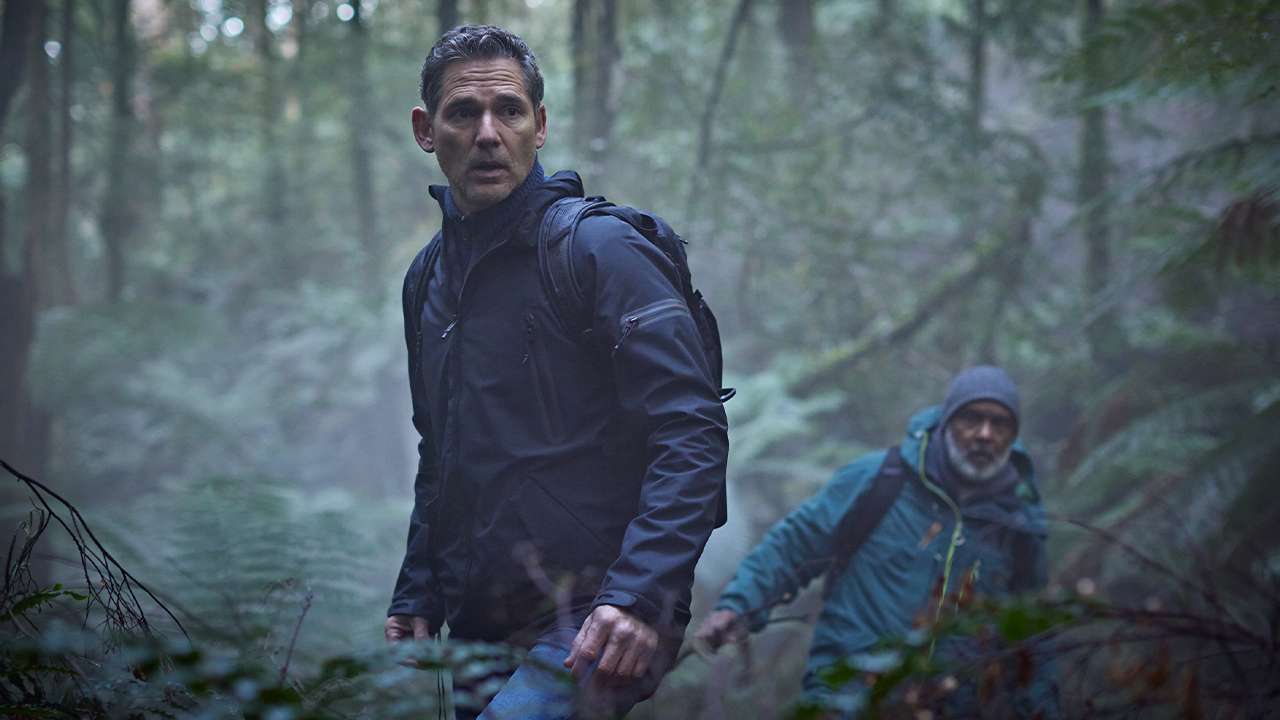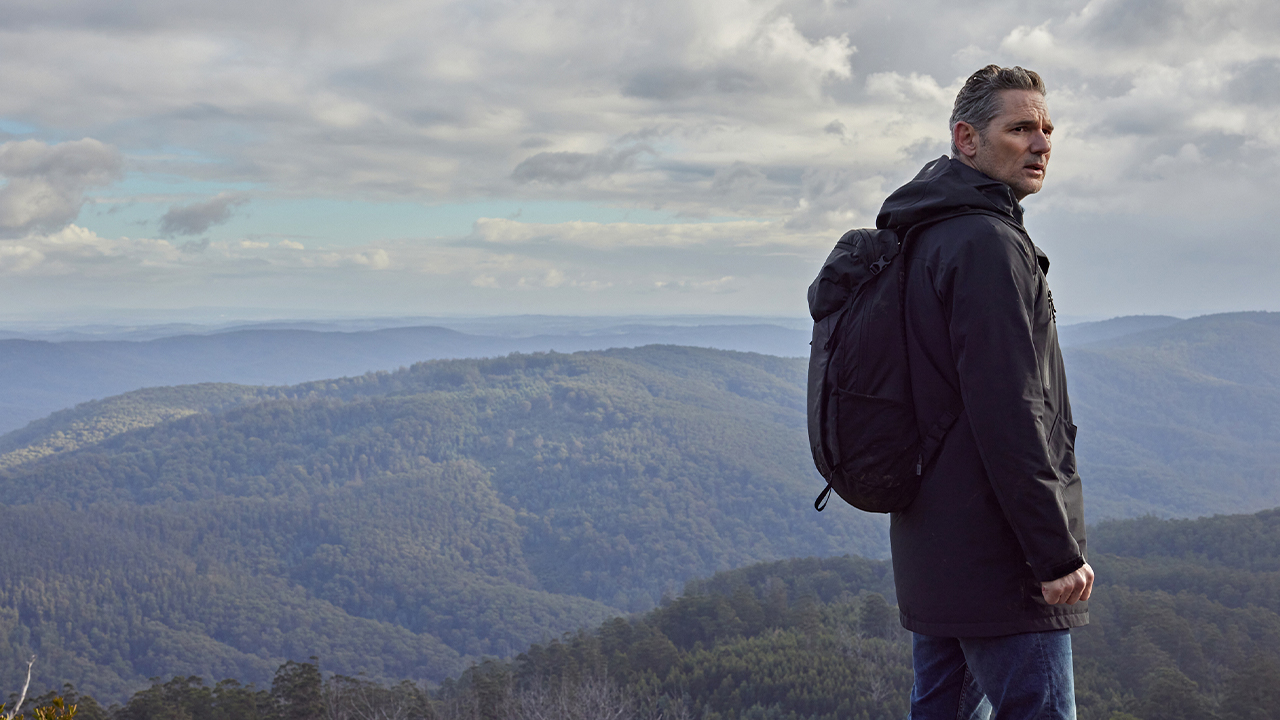Eric Bana and director Robert Connolly talk going bush for The Dry sequel

Eric Bana and director Robert Connolly speak with Stephen A Russell about embracing the wet of Force of Nature, sequel to their hit crime pic The Dry.
When The Dry star Eric Bana reunited with director Robert Connolly to shoot their take on the second book in Jane Harper’s wildly successful crime series featuring Detective Aaron Falk, Force of Nature, the conditions were very different.
That first instalment had taken Bana’s methodical Falk back to the fictional town of Kiewarra he left under a dark cloud as a teenager and embroiled him in two mysteries. Shot in Beulah, in the southern Mallee, during a scorching summer, the sweaty shoot tested the cast and crew. Gluttons for punishment, Force of Nature, subtitled The Dry 2, plunged them into the Dandenong Ranges National Park in the depths of winter, shivering cold and drenched with downpours.
Bana wouldn’t have it any other way. “I hate filming in the studio,” he says as we sit down at one end of a comically large boardroom table in the Melbourne offices of distributor Roadshow Films. “I love natural light and being outdoors because it gives you something to anchor your character in that’s very real. When you’re in the studio, the minute you bring in lights and you close the doors, it’s like a casino.”
Used to practical work, Bana rarely performs in front of a green screen. “With Troy, I was out there in the blazing sun [in Malta and Mexico] for five months,” he recalls, noting that he wasn’t even ‘green’ when shooting Ang Lee’s take on Marvel’s boofiest Avenger. “Not even on the Hulk. I wasn’t there for the green screen.”
The Dandenongs, astoundingly beautiful but treacherously vast and disorientating, gave Bana something solid to connect to as Falk. “There’s wind, the ground’s never even, so it affects everything about your performance,” he says. “It’s beautiful out there.”
Lost in the green
Both beautiful and dangerous, representing a very real threat to the film’s characters. Falk is haunted by his late mother’s fate here many years ago. Force of Nature dips into these tension-building flashbacks even as Falk tries to figure out what happened to his missing informant Alice, as played by The Newsreader star Anna Torv, in the present day.
She was on a corporate retreat led by her cantankerous boss Jill (Deborra-Lee Furness, returning to our screens after an almost decade-long gap), who may or may not have been onto Alice’s snooping alongside her conniving corporate crook husband Daniel (Prosper lead Richard Roxburgh) There’s beef between Alice and fellow posh school-run mum Lauren (Robin McLeavy, The Loved Ones), too, and how much do younger colleagues Beth (Sissi Stringer, Vampire Academy) and Bree (Lucy Ansell, Strife) know?

Later, the detective grills the assembled women, Poirot-style, in a remote hotel alongside fellow cop Carmen, played by Jaqueline McKenzie of Romper Stomper fame. As a storm approaches, time’s running out to locate Alice alive, with Falk enlisting the aid of Tony Briggs’ ranger Ian.
Bana relishes getting under the skin of Falk, a conflicted man who walks a very different line from Bana’s seminal turn as the notorious Pentridge Prison-confined lead in true-crime biopic Chopper. “The minute you decide you’re going to be this particular person, that might be unbelievably good, but it’s very, very limiting,” Bana says of the rich and varied career he’s enjoyed since leading Andrew Dominik’s gnarly 2000 hit, including voicing Damien in Adam Elliot’s lush stop-motion animation Mary and Max and playing Romulan villain Nero in J.J. Abrams’ Star Trek reboot. “I love the ability to bounce between different projects and try not to overthink it and just respond to the best material I can find and work with the best directors I can.”

Force of Nature and its precursor aren’t the first time Bana has teamed up with Connolly, who also directed him in the Mia Wasikowska-led Blueback and produced Romulus, My Father, the directorial debut of co-star Roxburgh.
Connolly joyously recalls their first day on location. “We introduced Eric, Richard, Deborra-Lee, Jacqueline and Tony, who wrote The Sapphires, and the crew applauded because it was like all these icons of our national cinema,” he says. “The camaraderie was incredible, and we all push each other to do great work.”
Telling our stories
Connolly and Bana passionately believe in telling Australian stories. “We had a screening in Sydney [of Force of Nature] at the Randwick Ritz and I remembered, as a kid, living around the corner and going to see Crocodile Dundee,” he says. “There were people queuing down the road.”
There’s a hunger for home-grown stories, with The Dry raking in some $20 million domestically as Australia emerged from lockdowns, hot on the heels of Roadshow releasing Wonder Woman one week earlier. Of course, audiences have had to wait for this sequel too, with the SAG-AFTRA strike pushing back the planned release date.
They’ve had great support from Harper herself. “She’s always there if you’ve got any questions, but she’s respectful, allowing us to adapt it as we need,” Connolly says. “She was really happy with The Dry, she loves Force of Nature, and her fans can be pretty overwhelming, so you want to make sure they’re happy too.”

While Australians punch above their per capita weight in terms of time and money spent on seeing the movies, Connolly says we can’t take success for granted: “America has a lot of capacity to make big studio films, and it’s really a miracle every time we get to make an Australian film.”
It’s why he says why it was important to cast Stringer and Ansell alongside the more established cast members. “One of the things people loved about The Dry was the new talent, and those young kids have gone on to have massive international careers,” Connolly says. “I go back to Muriel’s Wedding with Toni Collette and Rachel Griffiths.”
Bana suggests there’s room for both international blockbusters and local productions. “The more the merrier,” he says. “We saw with Barbie and Oppenheimer, those films benefited from the competition. And there’s no doubt that the more people who see Australian posters and trailers while they’re in the multiplex having a good experience, the more they want to come back.”
Australian audiences deserve to have that choice, he argues. “I want crews to be able to work 360 days a year if they want to, but at the same time, we need to be able to make films like Force of Nature.”






















